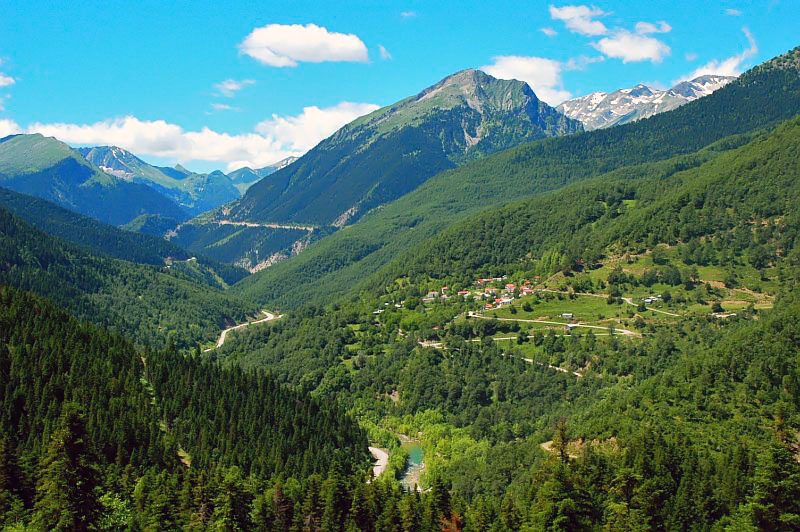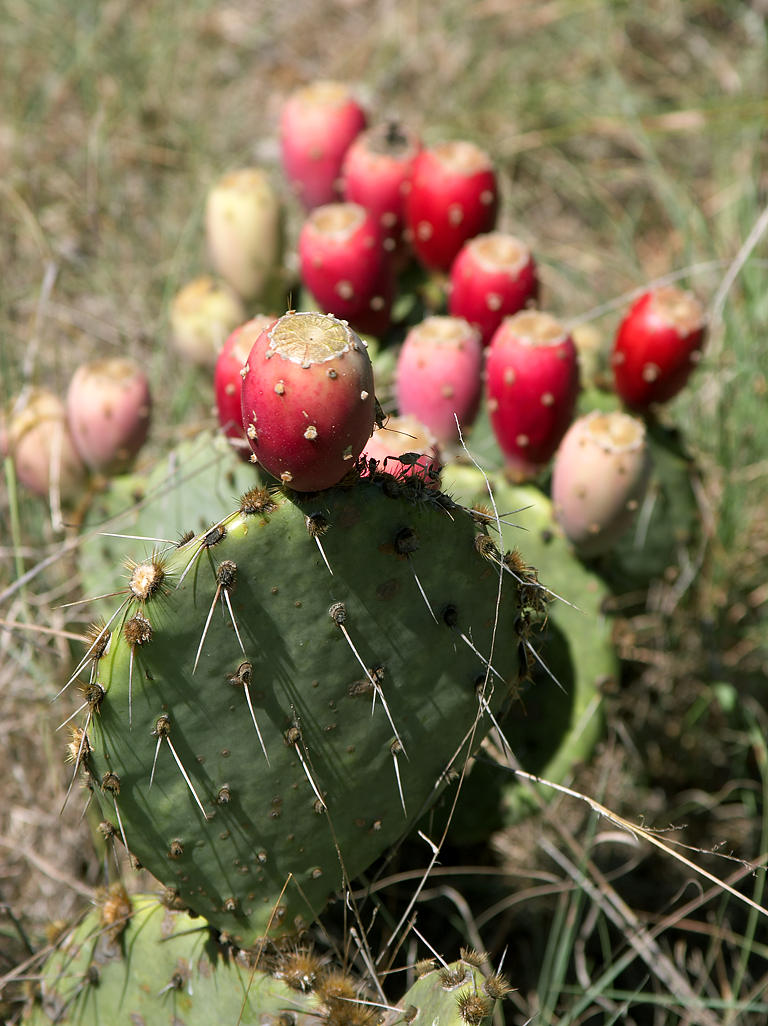|
Ainis
Ainis (Ancient Greek Αἰνίς, , Modern Greek Αινίδα, ) or Aeniania, was a region of ancient Greece located near Lamia in modern Central Greece, roughly corresponding to the upper Valley of Spercheios. Name The region takes its name from the tribe of the Ainianians, who dwelt in the area. The name ''Ainis'' first occurs in Roman times; the only known earlier name of the region was "land of the Aenianians", ''Ainianōn khōra'' (Theopompus). Geography Ainis is located in the upper Spercheios valley, bordering with Dolopia in the west, Oita in the south, Malis in the east and Achaia Phthiotis in the north.H. Kramolisch, "Ainianes" ''Der Neue Pauly'', Brill Online, 2013. The exact borders with Oita and Malis have never been established.M. H. Hansen & T. Heine Nielsen (eds.), ''An inventory of Archaic and Classical poleis'', Oxford 2004. The river Spercheios floats through the region on its way down to the Maliac Gulf, and is joined in Ainis by its chief tributary the I ... [...More Info...] [...Related Items...] OR: [Wikipedia] [Google] [Baidu] |
Kapheleis
Kapheleis ( grc, Καφελείς) was a polis (city-state) in Ainis in ancient Thessaly Thessaly or Thessalia (Attic Greek: , ''Thessalía'' or , ''Thettalía'') was one of the traditional regions of Ancient Greece. During the Mycenaean period, Thessaly was known as Aeolia, a name that continued to be used for one of the major tribes .... It is unlocated. References Populated places in ancient Thessaly Thessalian city-states Former populated places in Greece Ainis Lost ancient cities and towns {{AncientThessaly-geo-stub ... [...More Info...] [...Related Items...] OR: [Wikipedia] [Google] [Baidu] |
Talana (Ainis)
Talana ( grc, Ταλάνα) was a polis (city-state) in Ainis in ancient Thessaly Thessaly or Thessalia (Attic Greek: , ''Thessalía'' or , ''Thettalía'') was one of the traditional regions of Ancient Greece. During the Mycenaean period, Thessaly was known as Aeolia, a name that continued to be used for one of the major tribes .... It is unlocated. References Populated places in ancient Thessaly Thessalian city-states Former populated places in Greece Ainis Lost ancient cities and towns {{AncientThessaly-geo-stub ... [...More Info...] [...Related Items...] OR: [Wikipedia] [Google] [Baidu] |
Phyrrhagioi
Phyrrhagioi ( grc, Φυρράγιοι) was a polis (city-state) in Ainis in ancient Thessaly Thessaly or Thessalia (Attic Greek: , ''Thessalía'' or , ''Thettalía'') was one of the traditional regions of Ancient Greece. During the Mycenaean period, Thessaly was known as Aeolia, a name that continued to be used for one of the major tribes .... It is unlocated. References Populated places in ancient Thessaly Thessalian city-states Former populated places in Greece Ainis Lost ancient cities and towns {{AncientThessaly-geo-stub ... [...More Info...] [...Related Items...] OR: [Wikipedia] [Google] [Baidu] |
Spercheiai
Sperchiae or Sperchiai ( grc, Σπέρχεια) or Spercheiae or Spercheiai (Σπερχείαι) was a fortress in Ainis in ancient Thessaly, which, according to the description of Livy, would seem to have been situated at no great distance from the sources of the Spercheius. Ptolemy mentions a place Spercheia between Echinus and Thebes in Phthiotis; and Pliny the Elder Gaius Plinius Secundus (AD 23/2479), called Pliny the Elder (), was a Roman author, naturalist and natural philosopher, and naval and army commander of the early Roman Empire, and a friend of the emperor Vespasian. He wrote the encyclopedic '' ... places Sperchios in Doris. William Smith concludes it probable that these three names indicate the same place. Livy relates that the place was destroyed by the Aetolians in 198 BCE. Sperchiae's site is at a place called Kastrorakhi. References Populated places in ancient Thessaly Former populated places in Greece Ainis {{AncientThessaly-geo-stu ... [...More Info...] [...Related Items...] OR: [Wikipedia] [Google] [Baidu] |
Korophaioi
Korophaioi ( grc, Κοροφαῖοι) was a polis (city-state) in Ainis in ancient Thessaly Thessaly or Thessalia (Attic Greek: , ''Thessalía'' or , ''Thettalía'') was one of the traditional regions of Ancient Greece. During the Mycenaean period, Thessaly was known as Aeolia, a name that continued to be used for one of the major tribes .... It is unlocated. References Populated places in ancient Thessaly Thessalian city-states Former populated places in Greece Ainis Lost ancient cities and towns {{AncientThessaly-geo-stub ... [...More Info...] [...Related Items...] OR: [Wikipedia] [Google] [Baidu] |
Spercheios
The Spercheios (, ''Sperkheiós''), also known as the Spercheus from its Latin name, is a river in Phthiotis in central Greece. It is long, and its drainage area is . It was worshipped as a god in the ancient Greek religion and appears in some collections of Greek mythology. In antiquity, its upper valley was known as Ainis. In AD 997, its valley was the site of the Battle of Spercheios, which ended Bulgarian incursions into the Byzantine Empire. It is referenced in a surviving fragment of Aeschylus' play ''Philoctetes'', quoted in ''The Frogs'', as a place for cattle. River The river begins in the Tymfristos mountains on the border with Evrytania and flows to the east through the village Agios Georgios Tymfristou, entering a wide plain. It flows along the towns Makrakomi and Leianokladi, and south of the Phthiotidan capital Lamia. The river flows through an area of former wetlands, that have been reclaimed for agriculture. It empties into the Malian Gulf of the Aegean Se ... [...More Info...] [...Related Items...] OR: [Wikipedia] [Google] [Baidu] |
Pindus
The Pindus (also Pindos or Pindhos; el, Πίνδος, Píndos; sq, Pindet; rup, Pindu) is a mountain range located in Northern Greece and Southern Albania. It is roughly 160 km (100 miles) long, with a maximum elevation of 2,637 metres (8652') (Mount Smolikas). Because it runs along the border of Thessaly and Epirus, the Pindus range is known colloquially as the ''spine of Greece''. The mountain range stretches from near the Greek-Albanian border in southern Albania, entering the Epirus and Macedonia regions in northern Greece down to the north of the Peloponnese. Geologically it is an extension of the Dinaric Alps, which dominate the western region of the Balkan Peninsula. History of the name Historically, the name Pindos refers to the mountainous territory that separates the greater Epirus region from the regions of Macedonia and Thessaly. According to John Tzetzes (a 12th-century Byzantine writer), the Pindos range was then called Metzovon. When translated (bet ... [...More Info...] [...Related Items...] OR: [Wikipedia] [Google] [Baidu] |
Polis
''Polis'' (, ; grc-gre, πόλις, ), plural ''poleis'' (, , ), literally means "city" in Greek. In Ancient Greece, it originally referred to an administrative and religious city center, as distinct from the rest of the city. Later, it also came to mean the body of citizens under a city's jurisdiction. In modern historiography, the term is normally used to refer to the ancient Greek city-states, such as Classical Athens and its contemporaries, and thus is often translated as "city-state". The ''poleis'' were not like other primordial ancient city-states like Tyre or Sidon, which were ruled by a king or a small oligarchy; rather, they were political entities ruled by their bodies of citizens. The Ancient Greek ''poleis'' developed during the Archaic period as the ancestor of the Ancient Greek city, state and citizenship and persisted (though with decreasing influence) well into Roman times, when the equivalent Latin word was '' civitas'', also meaning "citizenhood", whi ... [...More Info...] [...Related Items...] OR: [Wikipedia] [Google] [Baidu] |
Lapiths
The Lapiths (; grc, Λαπίθαι) are a group of legendary people in Greek mythology, whose home was in Thessaly, in the valley of the Peneus and on the mountain Pelion. Mythology Origin The Lapiths were an Aeolian tribe who, like the Myrmidons, were natives of Thessaly. The genealogies make them a kindred people with the centaurs: In one version, Lapithes (Λαπίθης) and Centaurus (Κένταυρος) were said to be twin sons of the god Apollo and the nymph Stilbe, daughter of the river god Peneus. Lapithes was a valiant warrior, but Centaurus was a deformed being who later mated with mares from whom the race of half-man, half-horse centaurs came. Lapithes was the eponymous ancestor of the Lapith people, and his descendants include Lapith warriors and kings, such as Ixion, Pirithous, Caeneus, and Coronus, and the seers Ampycus and his son Mopsus. In the ''Iliad'' the Lapiths send forty crewed ships to join the Greek fleet in the Trojan War, commanded by Polypoetes ... [...More Info...] [...Related Items...] OR: [Wikipedia] [Google] [Baidu] |
Thessaly
Thessaly ( el, Θεσσαλία, translit=Thessalía, ; ancient Thessalian: , ) is a traditional geographic and modern administrative region of Greece, comprising most of the ancient region of the same name. Before the Greek Dark Ages, Thessaly was known as Aeolia (, ), and appears thus in Homer's ''Odyssey''. Thessaly became part of the modern Greek state in 1881, after four and a half centuries of Ottoman rule. Since 1987 it has formed one of the country's 13 regions and is further (since the Kallikratis reform of 2011) sub-divided into five regional units and 25 municipalities. The capital of the region is Larissa. Thessaly lies in northern Greece and borders the regions of Macedonia on the north, Epirus on the west, Central Greece on the south, and the Aegean Sea on the east. The Thessaly region also includes the Sporades islands. Name and etymology Thessaly is named after the ''Thessaloi'', an ancient Greek tribe. The meaning of the name of this tribe is unknow ... [...More Info...] [...Related Items...] OR: [Wikipedia] [Google] [Baidu] |
Plutarch
Plutarch (; grc-gre, Πλούταρχος, ''Ploútarchos''; ; – after AD 119) was a Greek Middle Platonist philosopher, historian, biographer, essayist, and priest at the Temple of Apollo in Delphi. He is known primarily for his ''Parallel Lives'', a series of biographies of illustrious Greeks and Romans, and ''Moralia'', a collection of essays and speeches. Upon becoming a Roman citizen, he was possibly named Lucius Mestrius Plutarchus (). Life Early life Plutarch was born to a prominent family in the small town of Chaeronea, about east of Delphi, in the Greek region of Boeotia. His family was long established in the town; his father was named Autobulus and his grandfather was named Lamprias. His name is derived from Pluto (πλοῦτον), an epithet of Hades, and Archos (ἀρχός) meaning "Master", the whole name meaning something like "Whose master is Pluto". His brothers, Timon and Lamprias, are frequently mentioned in his essays and dialogues, which ... [...More Info...] [...Related Items...] OR: [Wikipedia] [Google] [Baidu] |
Opuntia
''Opuntia'', commonly called prickly pear or pear cactus, is a genus of flowering plants in the cactus family Cactaceae. Prickly pears are also known as ''tuna'' (fruit), ''sabra'', ''nopal'' (paddle, plural ''nopales'') from the Nahuatl word for the pads, or nostle, from the Nahuatl word for the fruit; or paddle cactus. The genus is named for the Ancient Greek city of Opus, where, according to Theophrastus, an edible plant grew and could be propagated by rooting its leaves. The most common culinary species is the Indian fig opuntia (''O. ficus-indica''). Description ''O. ficus-indica'' is a large, trunk-forming, segmented cactus that may grow to with a crown of over in diameter and a trunk diameter of . Cladodes (large pads) are green to blue-green, bearing few spines up to or may be spineless. Prickly pears typically grow with flat, rounded cladodes (also called platyclades) containing large, smooth, fixed spines and small, hairlike prickles called glochids that ... [...More Info...] [...Related Items...] OR: [Wikipedia] [Google] [Baidu] |





